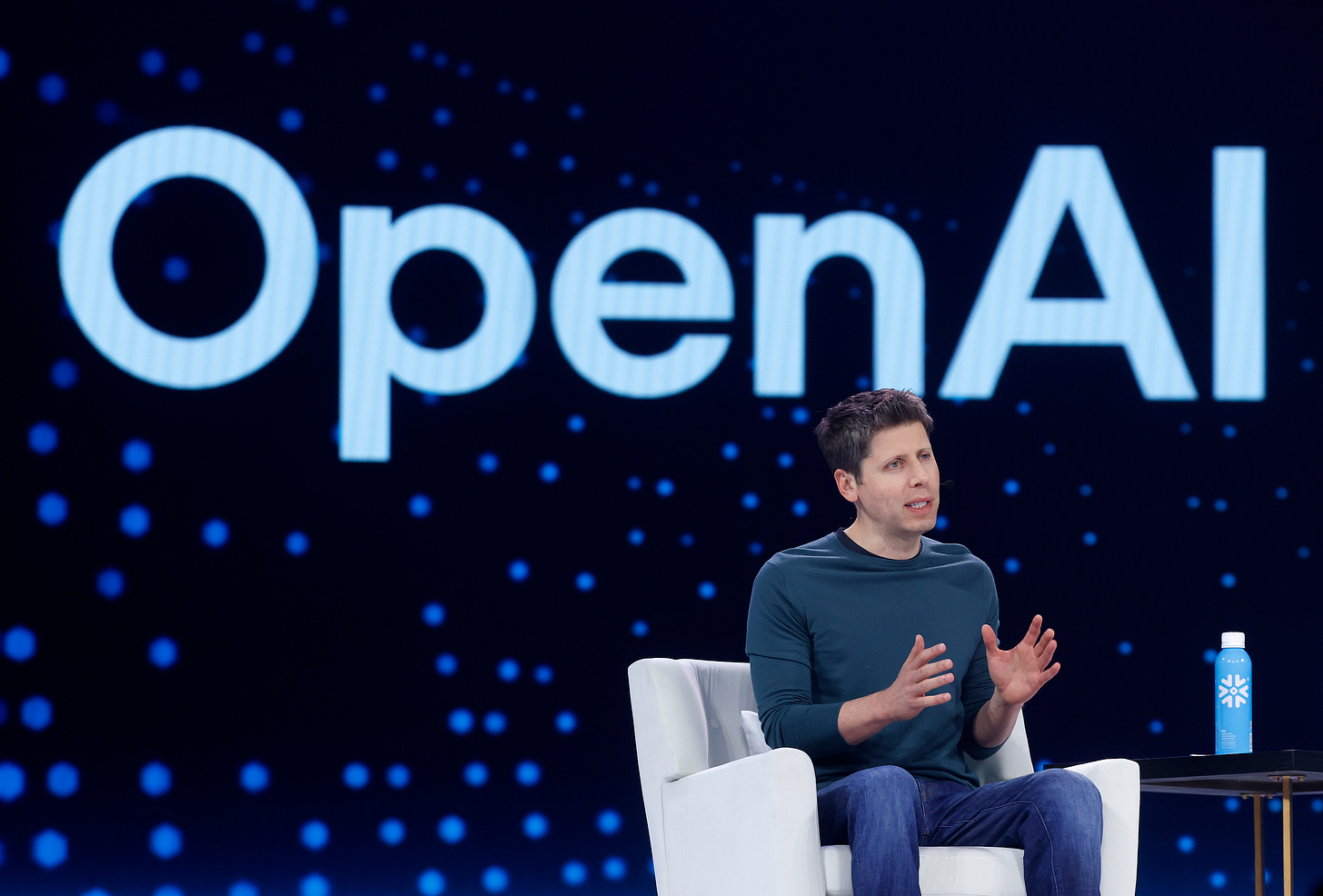What you need to know about the OpenAI restructure
Negotiations have seen safeguards and concessions built in, but questions remain about how effective they’ll be, and how fair the deal is
It’s official: OpenAI is a for-profit company.
OpenAI announced on Tuesday that its for-profit wing is now a public benefit corporation (PBC) similar to Anthropic and xAI. Its nonprofit wing, the OpenAI Foundation, will hold a $130b stake in the for-profit company, and retain control over its board. Agreements with attorneys general in Delaware and California have also led to safety commitments, including a veto on new model releases sitting with the nonprofit.
The deal theoretically makes the non-profit the most well-funded foundation in the US. It will start off with a $25b commitment to fund research into healthcare and disease, and support for “practical technical solutions for AI resilience.”
The move has big implications for OpenAI’s main investor, Microsoft, which will keep a 27% stake in OpenAI Group PBC valued at $135b. The deal extends Microsoft’s access to OpenAI’s models through 2032, including any human-level intelligence it might eventually create, and the company will also retain access to OpenAI’s pre-release research until either 2030 or when it has been decided AGI has been achieved, whichever comes first.
Under the terms of the previous deal, an OpenAI declaration it had developed AGI would have ended Microsoft’s access. That declaration will now also have to be verified by an “independent expert panel,” though exactly how that will work, or what definition it will use, remains unclear.
Microsoft will reportedly continue to get a roughly 20% revenue share until that verified declaration, but it won’t have rights to any OpenAI hardware products and will no longer have right of first refusal to be its compute provider. OpenAI has, however, committed to spending $250b with Microsoft’s cloud business.
Meet the new board
The announcement follows nearly two years of battling over OpenAI’s corporate structure. In September 2024, news broke that Sam Altman was planning to remove control from the nonprofit board, and take billions in equity. Two months later, OpenAI argued that it “must” restructure, so that “the for-profit’s success [could enable] the non-profit to be well funded, better sustained, and in a stronger position for the mission.” Being a for-profit, was, it argued, necessary to raise the capital required to achieve its goals.
However, any restructure was always going to have to grapple with legal oversight from attorneys general in Delaware, where it is registered, and California, where it is based. Delaware Attorney General Kathy Jennings announced on Tuesday that the nonprofit “will retain control and oversight over the newly formed PBC” — including the sole power to appoint and remove all PBC board members — and that PBC directors “may not consider the pecuniary interests of stockholders” on safety and security issues.
Jennings also secured OpenAI’s commitment to keep the Safety and Security Committee with the nonprofit, with the authority to “require mitigation measures —- up to and including halting the release of models or AI systems — even where the applicable risk thresholds would otherwise permit release.”
In many ways, this seems largely consistent with the status quo, with the nonprofit still technically controlling the for-profit PBC. However, it’s been noted that the boards of the two entities are currently virtually identical, with the foundation’s board members — who largely defer to Altman — appointed to the board of the new PBC. The one exception is computer scientist Zico Kolter, who as the head of the Safety and Security Committee must be on the nonprofit board but not the PBC’s, according to OpenAI’s agreement with the California Attorney General.
Uncapped returns
Another key aspect of the deal concerns the returns OpenAI’s shareholders, including the employees and investors who together own around 47%, can expect. Under OpenAI’s old structure, investors were entitled only to a profit share, and any profit above 100 times the value of what they originally held would have flowed back to the nonprofit. Now, the profit caps are gone. All shareholders — Microsoft, VC firms including Andreessen Horowitz and Sequoia Capital, employees, and the foundation alike — hold regular equity that grows proportionally. Altman is, reportedly, not taking equity in the new company.
The change has raised questions about whether the nonprofit arm is getting a raw deal. In a blog published last week, Zvi Mowshowitz argued that a fair market value transaction would leave the non-profit with over 50% of the shares in the for-profit company. He said that the nonprofit is selling the promise of AGI going well, which would make OpenAI Group PBC trillions if it succeeds. “They shouldn’t sell it cheap.”
In a post describing their updated structure, OpenAI argues that this won’t matter because in addition to the OpenAI Foundation’s 26% equity stake in the for-profit company, it “also holds a warrant that allows it to receive additional shares in OpenAI Group if it hits a valuation milestone.”
In other words, the nonprofit’s stake will theoretically grow with the PBC, leaving it, according to OpenAI “positioned to be the single largest long-term beneficiary of OpenAI’s success.” However, it conspicuously hasn’t publicly specified how many shares that warrant provides.
The restructure now opens up the way for the company to go public, something Altman said on Tuesday is likely necessary to raise the huge amounts required to keep building more powerful models.
OpenAI claims their negotiations with the AGs have made its restructuring “the strongest representation of mission-focused governance in the industry today.” It will have to be to withstand the many pressures, commercial and otherwise, the new OpenAI will face.



